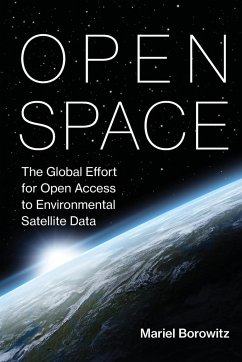An examination of environmental satellite data sharing policies, offering a model of data-sharing policy development, case and practical recommendations for increasing global data sharing. Key to understanding and addressing climate change is continuous and precise monitoring of environmental conditions. Satellites play an important role in collecting climate data, offering comprehensive global coverage that can't be matched by in situ observation. And yet, as Mariel Borowitz shows in this book, much satellite data is not freely available but restricted; this remains true despite the data-sharing advocacy of international organizations and a global open data movement. Borowitz examines policies governing the sharing of environmental satellite data, offering a model of data-sharing policy development and applying it in case studies from the United States, Europe, and Japan--countries responsible for nearly half of the unclassified government Earth observation satellites. Borowitz develops a model that centers on the government agency as the primary actor while taking into account the roles of such outside actors as other government officials and non-governmental actors, as well as the economic, security, and normative attributes of the data itself. The case studies include the U.S. National Aeronautics and Space Administration (NASA) and the U.S. National Oceanographic and Atmospheric Association (NOAA), and the United States Geological Survey (USGS); the European Space Agency (ESA) and the European Organization for the Exploitation of Meteorological Satellites (EUMETSAT); and the Japanese Aerospace Exploration Agency (JAXA) and the Japanese Meteorological Agency (JMA). Finally, she considers the policy implications of her findings for the future and provides recommendations on how to increase global sharing of satellite data.
Hinweis: Dieser Artikel kann nur an eine deutsche Lieferadresse ausgeliefert werden.
Hinweis: Dieser Artikel kann nur an eine deutsche Lieferadresse ausgeliefert werden.








